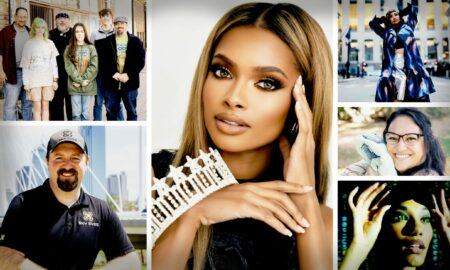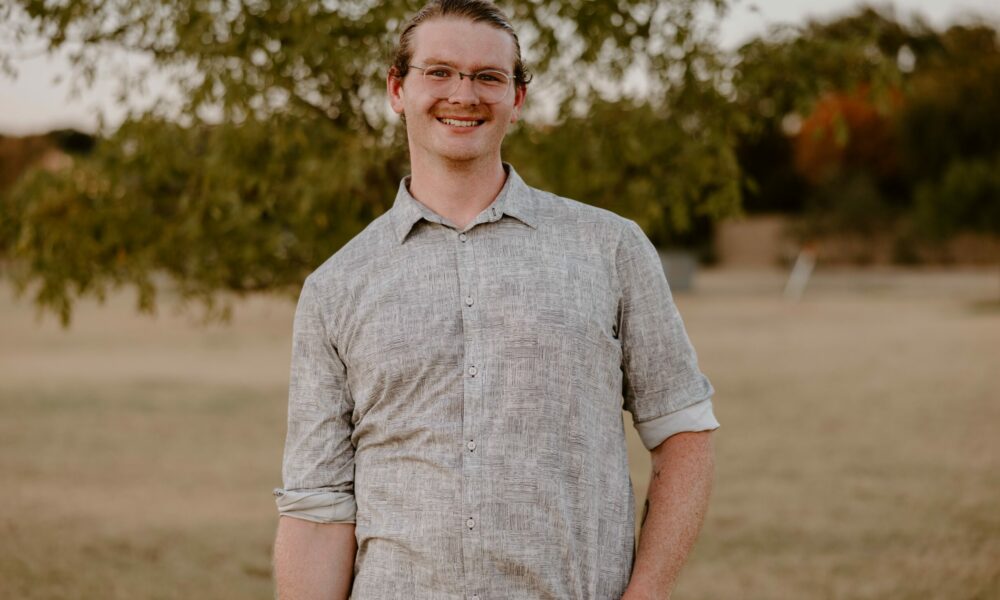

Today we’d like to introduce you to Jacob Steed.
Hi Jacob, we’d love for you to start by introducing yourself.
Filmmaking has always been my life’s passion, and my fascination with it began by watching my dad make home movies when I was a little kid. When I was ten years old, I found a camera in my dad’s truck and hit record for the first time and I instantly fell in love. When I was 17, I took my first paid gig and took many more, freelancing part-time during school. When I graduated from the University of North Texas last year, I took my side-hustle full-time. I mostly work with DFW businesses with their video content — brand films, recruitment campaigns, training and onboarding material, and short-form content creation, and I take a few wedding gigs a month to fill out my schedule. So far, it’s a great career, it stretches me creatively, and I love what I do.
Outside of work, I love working on personal filmmaking projects, spending time outdoors, running, yoga, meditation, reading (currently: Walter Isaacson’s ‘Elon Musk’ and Neil Howe’s and William Strauss’s ’The Fourth Turning’ — both are fantastic), and re-watching my favorite movies and picking out new details and layers of meaning that I didn’t catch last time.
We all face challenges, but looking back, would you describe it as a relatively smooth road?
The biggest hurdle has always been myself. It’s a challenge to express my creativity without imposter syndrome or lack of motivation kicking in — something most creative people wrestle and dance with. Meeting that challenge, and breaking through those barriers I set up in my own mind, is a huge part of the work.
Outside that, learning the business of videography at the beginning was its own challenge: I’m a mostly left-brained person, and business-savvy people usually have stronger right-brain hemispheres, so this took me well outside my comfort zone. But, I found a synergistic relationship between the two fundamental natures of cognition — growing one side inextricably strengthens the other. The past year and a half has stretched me a great deal, and rarely were these lessons comfortable, but I don’t think I’d be very happy with myself if I always took the easy way out. Happiness comes from growing into your fullest potential, whatever that means to someone — so whenever a challenge presents itself, there also is an opportunity to grow.
This pattern parallels the physical Universe, whose nature is infinite expansion.
Appreciate you sharing that. What else should we know about what you do?
A big part of my work is creative consultation. I dig deep into my clients’ DNA as a business or brand and come up with the right messaging, aesthetic, audience profile, and the end-goals for our video(s) — and this happens long before the cameras come out. Many people also struggle with the camera itself, so we do as many takes as it takes until they feel comfortable and confident.
It’s also important to know that, in the corporate and commercial videography space, video is really just a tool to help a business meet their goals — whether that’s growing revenue, brand recognition, thought leadership, recruiting, employee training, social media, or advertising. People don’t want a video because it’s a video; they want the results of what the video does when it’s put to work. Starting there, at the end-goal, informs every subsequent creative decision and mitigates confusion between my clients and I.
In terms of your work and the industry, what are some of the changes you are expecting to see over the next five to ten years?
The technology of video, invented in the late 1800s, is the second-best way to communicate something, just shy of a face-to-face conversation. Nothing else is as immersive or easier to share when you can virtually put your audience’s eyes and ears wherever you want. The Internet, pocket-sized supercomputers, and screens installed everywhere ignited an explosion of video, and demand for it increases every year, and there are videographers (/filmmakers) in every market around the world. This technology is as integral to our way of life today as are our index fingers and opposable thumbs. So I’ve got some reasonably good job security as long as the world doesn’t blow up.
Artificial intelligence, or machine learning, is the big new thing today, just like how the Internet was the big new thing of the 1990s, just like the personal computer of the 1970s, the television of the 1950s, the radio of the 1920s, and the printing press of the 1430s. I use AI tools all the time: generating captions, de-noising footage, cleaning up audio recordings, and using ChatGPT to help me simplify long emails, legal documents, and write CSS code for my website. Basing computers on the structure of the brain has been fundamentally what the world’s innovators have been doing since they invented the computer; machine learning is really just another leap in this capability of mind-mimicking, and we won’t deviate from this inherent trend. Looking further ahead, I think quantum computers — which use non-binary qubits, as opposed to the zeroes and ones of today’s computers, a fundamental change in how computers store and process information — will shake things up again in twenty or thirty years. What this means for filmmakers is that our tools will make our jobs easier and easier and easier.
With all this convenience, the challenge for my industry is to, first, constantly learn and experiment with new methods of working so that we don’t stagnate in old ones while everyone else runs circles around our stubborn rigidity — this is bad for business as well as boring. Second, it’s important to not over-rely on AI tools at the expense of originality because they’re so convenient — the more of our work we delegate to AI, the less we show up. It’s the human spirit, embedded in what we do, that makes anything worth anyone’s attention, and AI, which can only ever extrapolate from the average of the sum of its inputs according to its programming, will always approach a limit to how human it can get because its programming is based on the limited knowledge of consciousness of its programmers. And people are not stupid — I refuse to believe this, as well as the idea that a human being is simply the sum of their memories. As we’ve played with AI more, we’ve gotten better at telling the difference between something computer-generated and something real, and we’ve also seen AI do some pretty disgusting and ugly and stupid things. I imagine, as machine learning technology grows in sophistication, so too will our intuition have to be at sniffing out what’s fake. That will separate the hacks who cheat their way in the filmmaking craft from those who do it simply for the love of the game.
- Website: steedfilms.com
- Instagram: @steed / @steedfilms
- Youtube: https://www.youtube.com/
channel/ UClN8Iv0XhGLo3CuIAjExJ8A
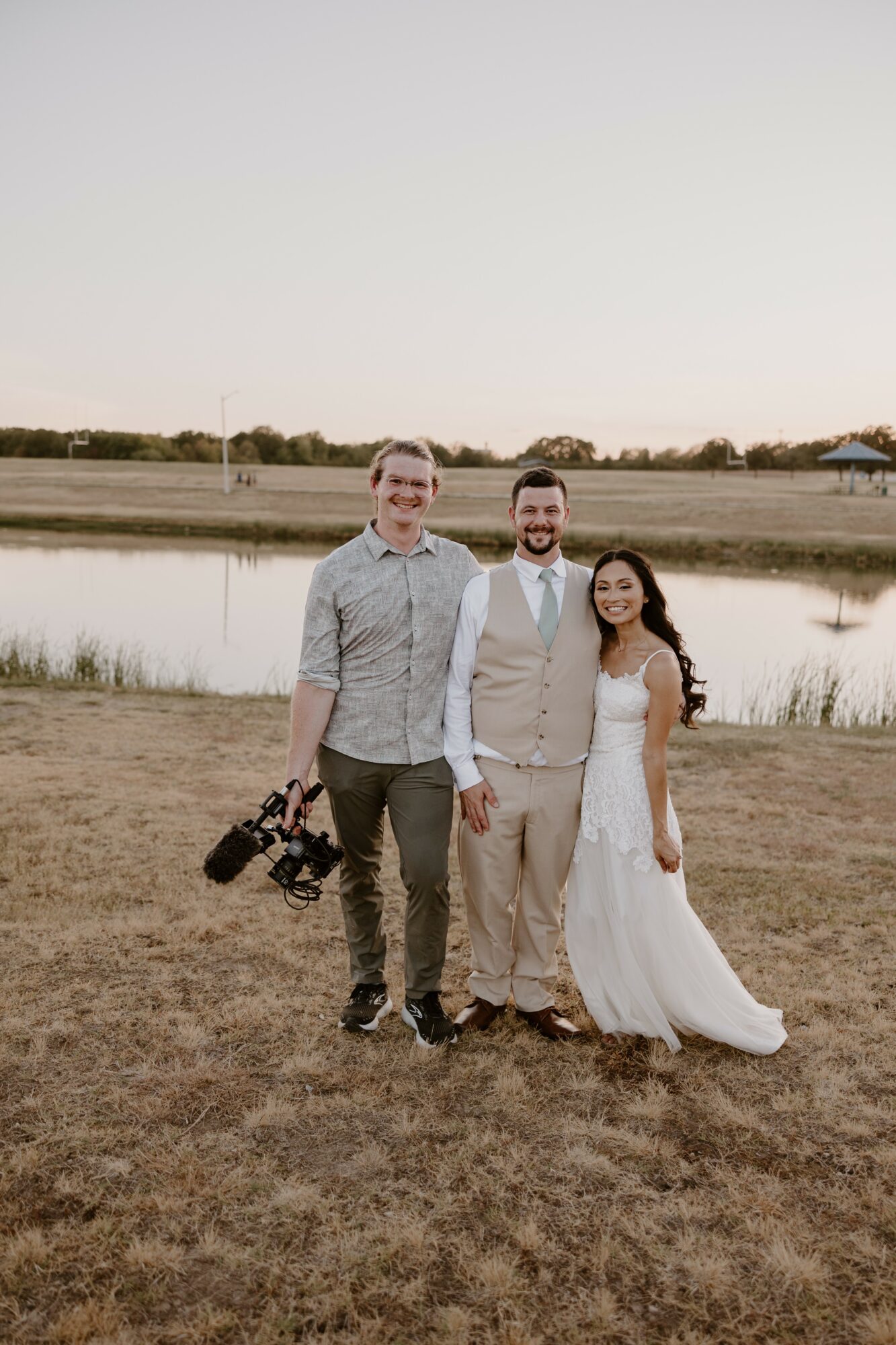
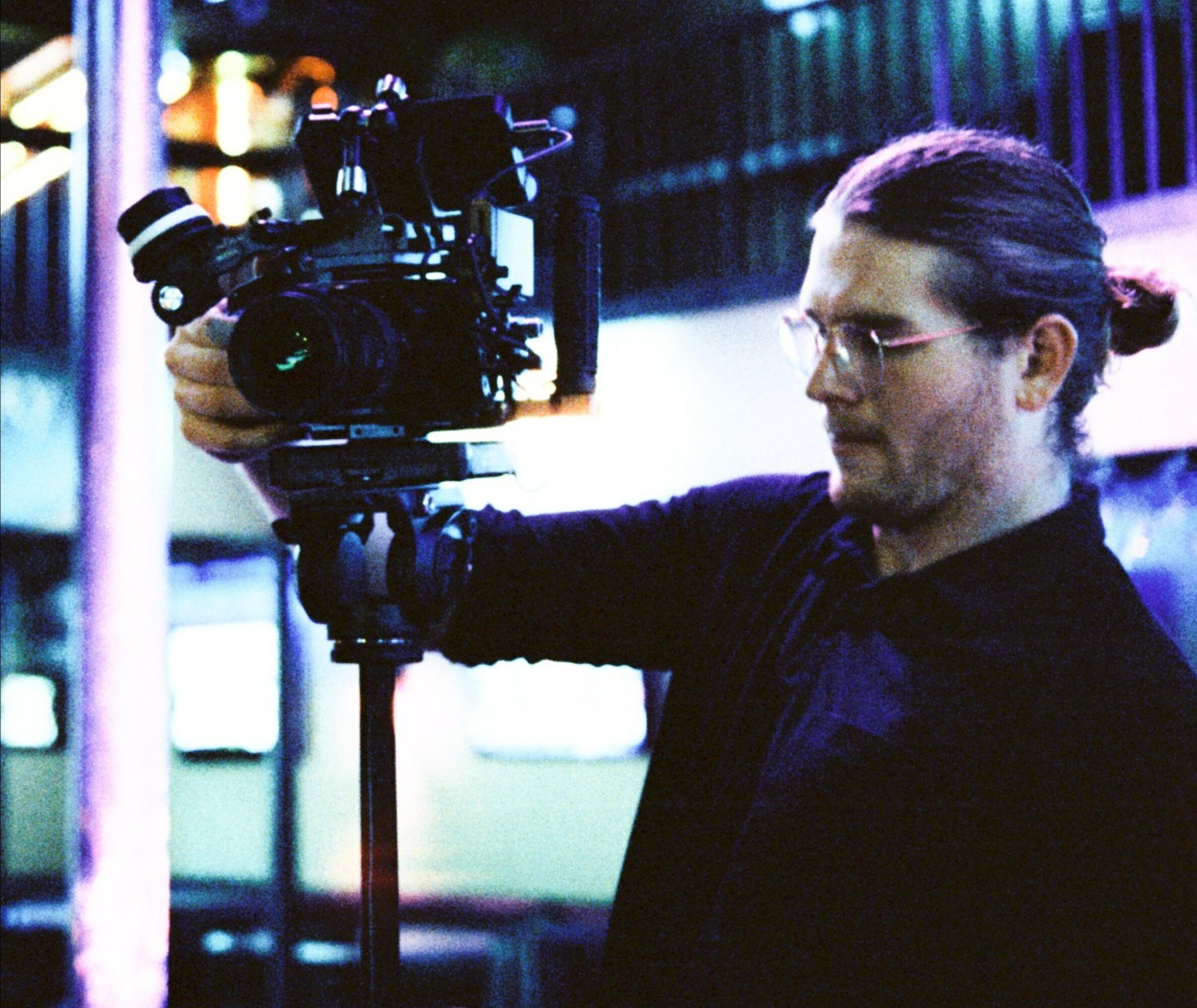
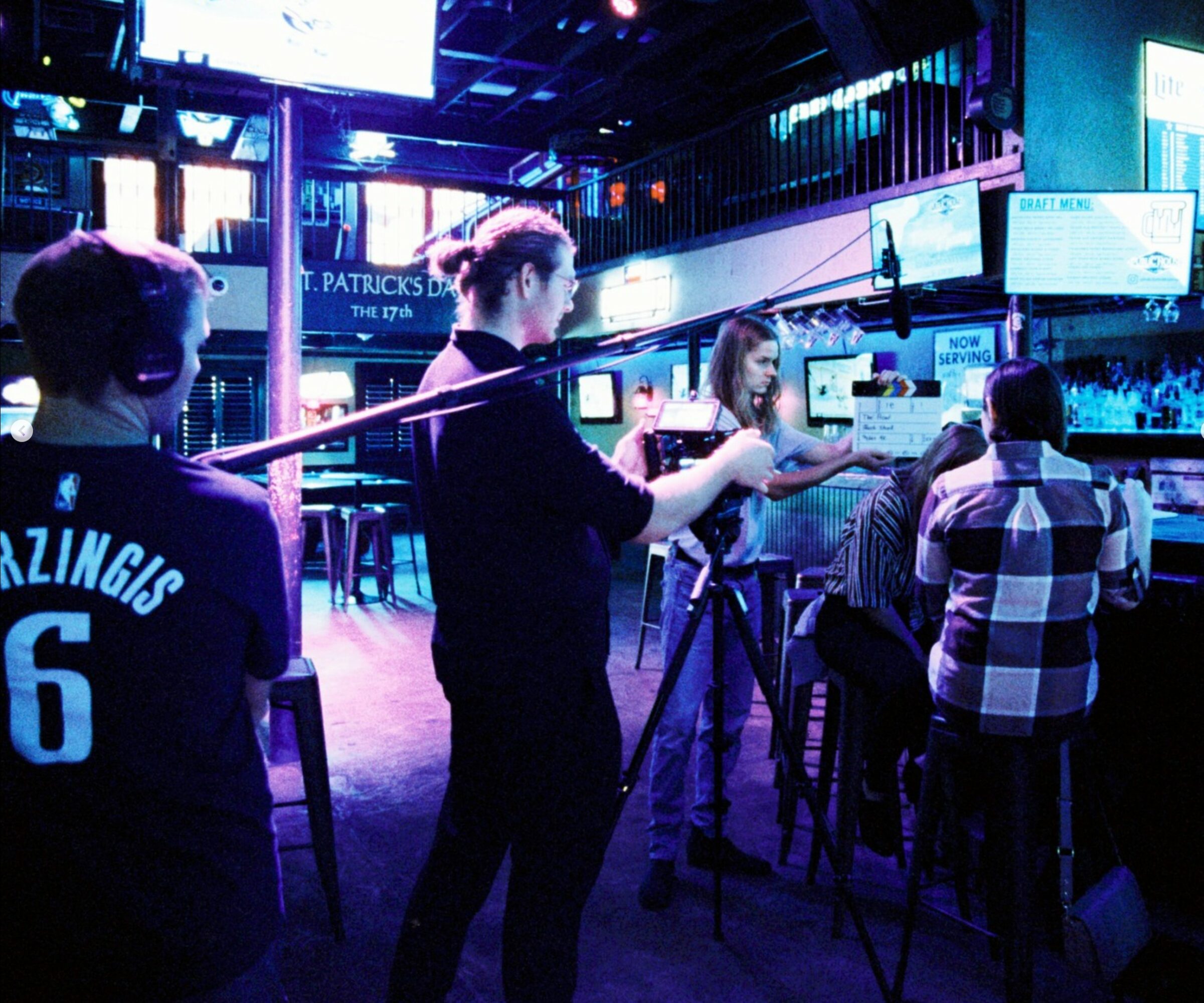
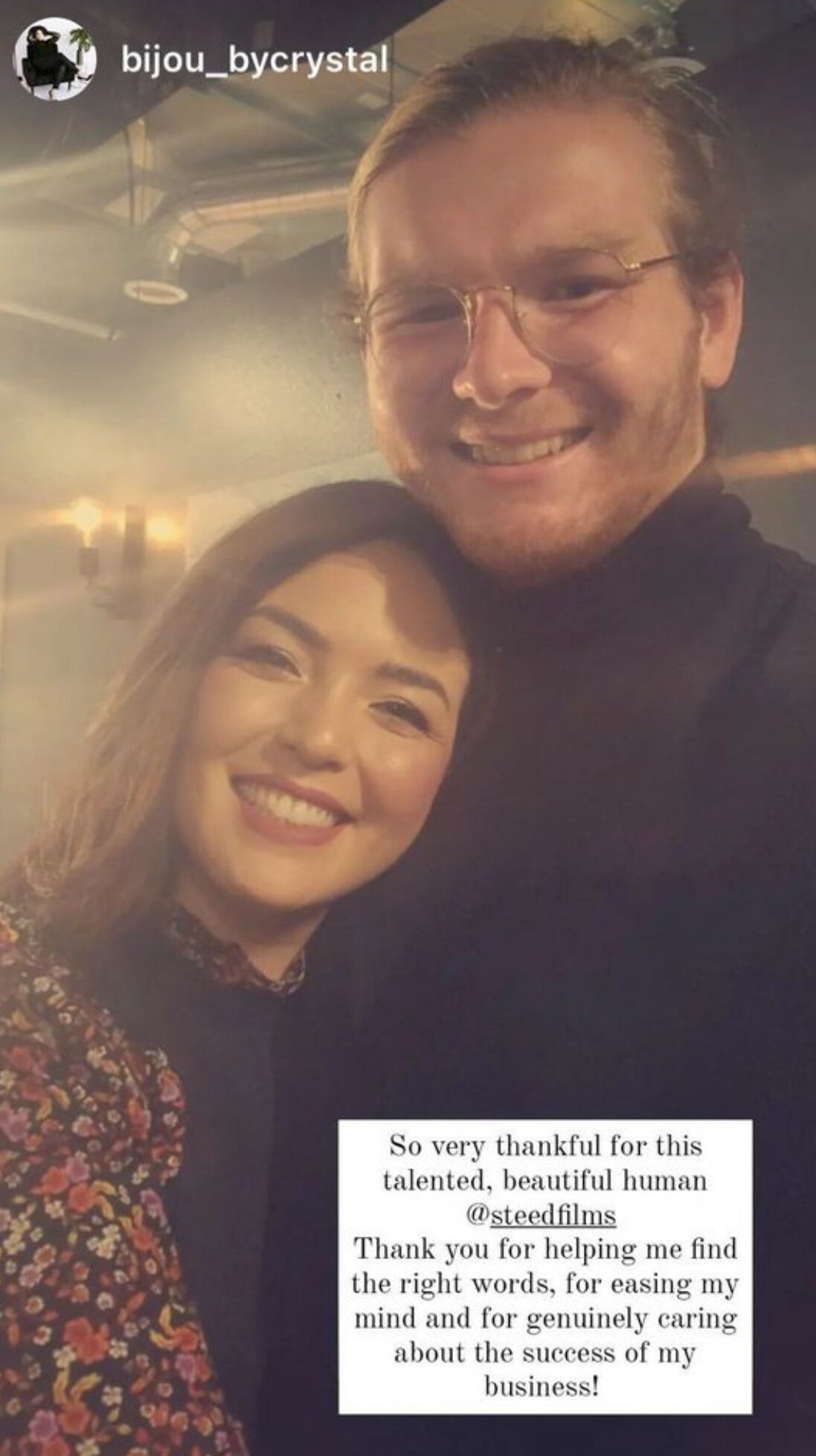
Image Credits
Alli Rae Photography

